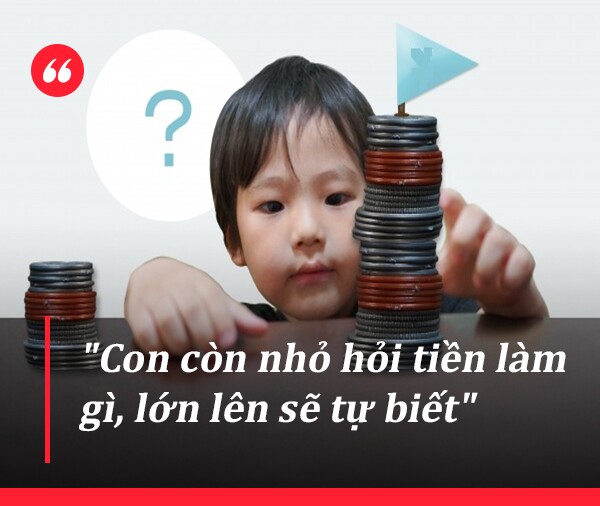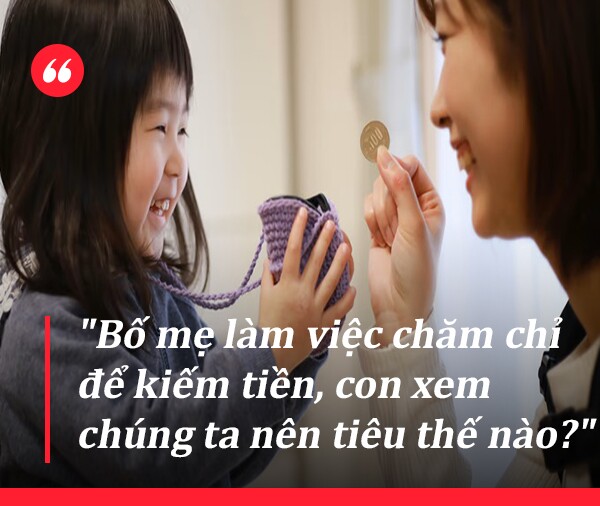A mother shared a story about her son who wanted to buy a toy during their visit to the mall. The child insisted on buying the toy, but she refused. The child then asked: “Mom, how much money do we have?”
The mother honestly answered: “We are very poor. There may not be enough money to buy food, so I won’t buy you toys.”
According to psychologists, a child’s question, “How much money do we have?” and the parent’s response are crucial. Different answers can lead to different paths in a child’s life. Parents should not take this matter lightly.


“We are so poor, we don’t have any money!”
This response, although seemingly teaching children about frugality, can actually plant a “seed of negativity” in their minds from a psychological perspective.
When parents casually reply, “We are poor,” children may develop a sense of constant survival anxiety, leading to worry and insecurity.
Moreover, some children may feel unworthy of toys and good things. As they grow up, they tend to believe they don’t deserve good things, missing out on numerous growth opportunities.
Additionally, children who are overly restrained from consuming at a young age may compensate for their psychological shortcomings by going on a “revenge spending spree” when they grow up, falling into the trap of “revenge consumption.” This can be detrimental to their future financial management and career development.


“We have a lot of money, and it will last us a lifetime!”
“We have so much money that you can spend it all your life.” This type of answer can easily make children feel that money is an infinite resource, leading to serious misunderstandings about the value of money and financial management.
Growing up with the idea that money is endless can make children irresponsible with their spending, unappreciative of what they have, and unaware of the hard work required to earn money.
Furthermore, by not emphasizing the importance of saving and financial planning, children may not realize that their future financial stability depends on their current consumption decisions.
If children do not learn money management skills from a young age, they may struggle with financial situations in adulthood, such as paying tuition fees, buying necessities, or establishing financial independence.


“You’re too young to worry about money; you’ll understand when you’re older”
Some parents tend to avoid answering this question, believing that children don’t need to know about finances at a young age. However, ignoring the question is not advisable, as it may make children feel that their parents don’t trust them or value their inquiries.
In reality, when children ask about money, they already have a certain level of understanding, even if it’s just basic concepts. They may have observed their parents spending, saving, or even overheard financial conversations between adults.
Evading the question can leave children confused and even anxious. If parents keep financial matters secret, children may feel more uncertain and imagine negative scenarios.

Furthermore, not providing clear explanations about money can create anxiety in children’s minds, making them view money as something mysterious or complicated. This can lead to the formation of incorrect financial concepts as they grow up.
Without proper guidance, children may become irresponsible consumers, struggle with personal financial management, or even fall into debt as adults.

“Mom and Dad work hard to earn money; let’s discuss how we should spend it”
The writer Liu Yu shared a story about her daughter asking for money.
When her daughter asked, “Do we have money, Mom?” she showed her the salary slip and explained: “This is the money I earned from writing. First, we’ll use it to pay the mortgage, then go to the supermarket to buy milk and bread. The rest will be divided into three parts.”
“One part is for tuition fees, another for emergencies like illness, and the last part is for pocket money.”
Her daughter then suggested: “Mom, you don’t have to buy me expensive brushes. I think cheaper ones work just fine.”
The wisdom in this response lies in using a practical approach to teach children that “money is a circulating resource.” This helps them understand how to earn and spend money wisely.

When parents react this way, children learn about saving and financial management as they grow up. Like a typical family, they may not be rich, but they are willing to share their financial situation with their children.
Therefore, when children ask, “How much money do we have?” it is an opportunity for financial education. Parents should be skillful and subtle in their responses. It is essential to be honest about the family’s financial situation, whether rich or poor, and to teach appropriate spending and financial management skills.






































